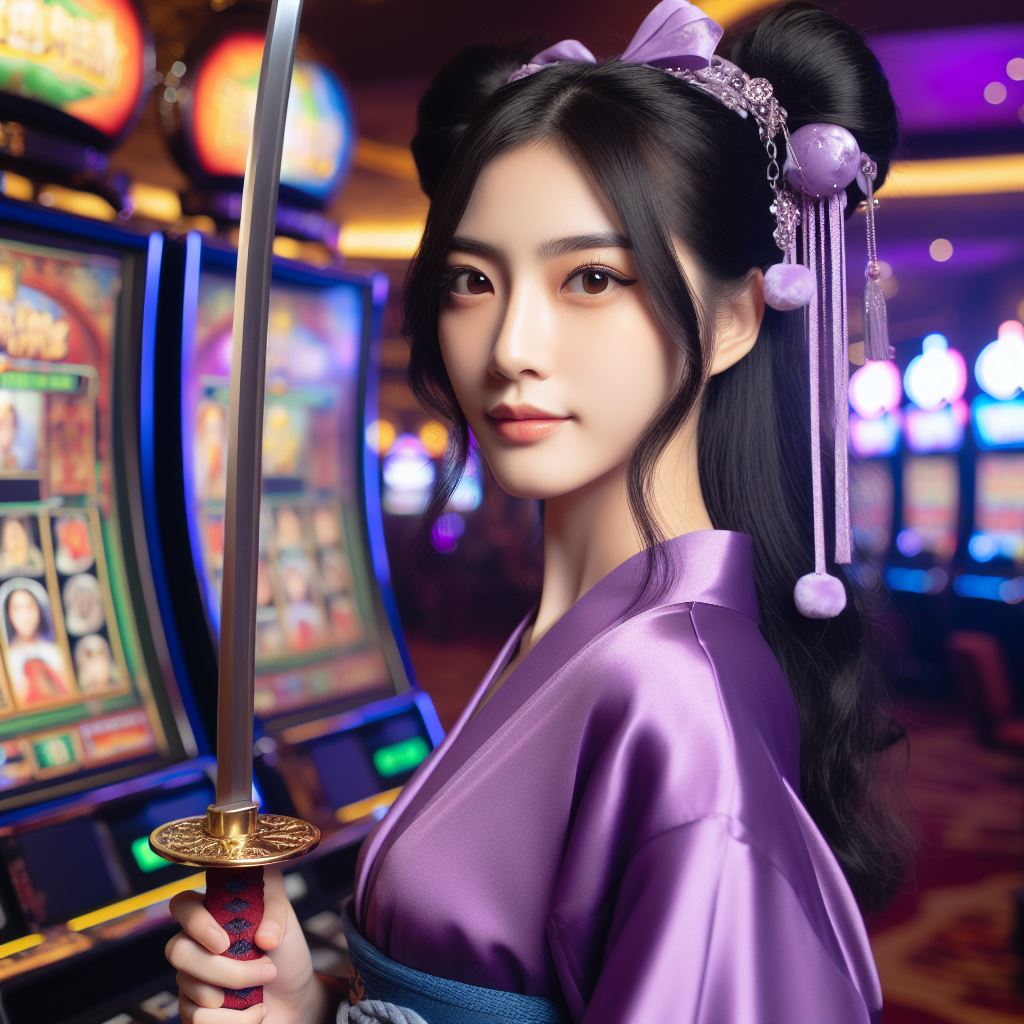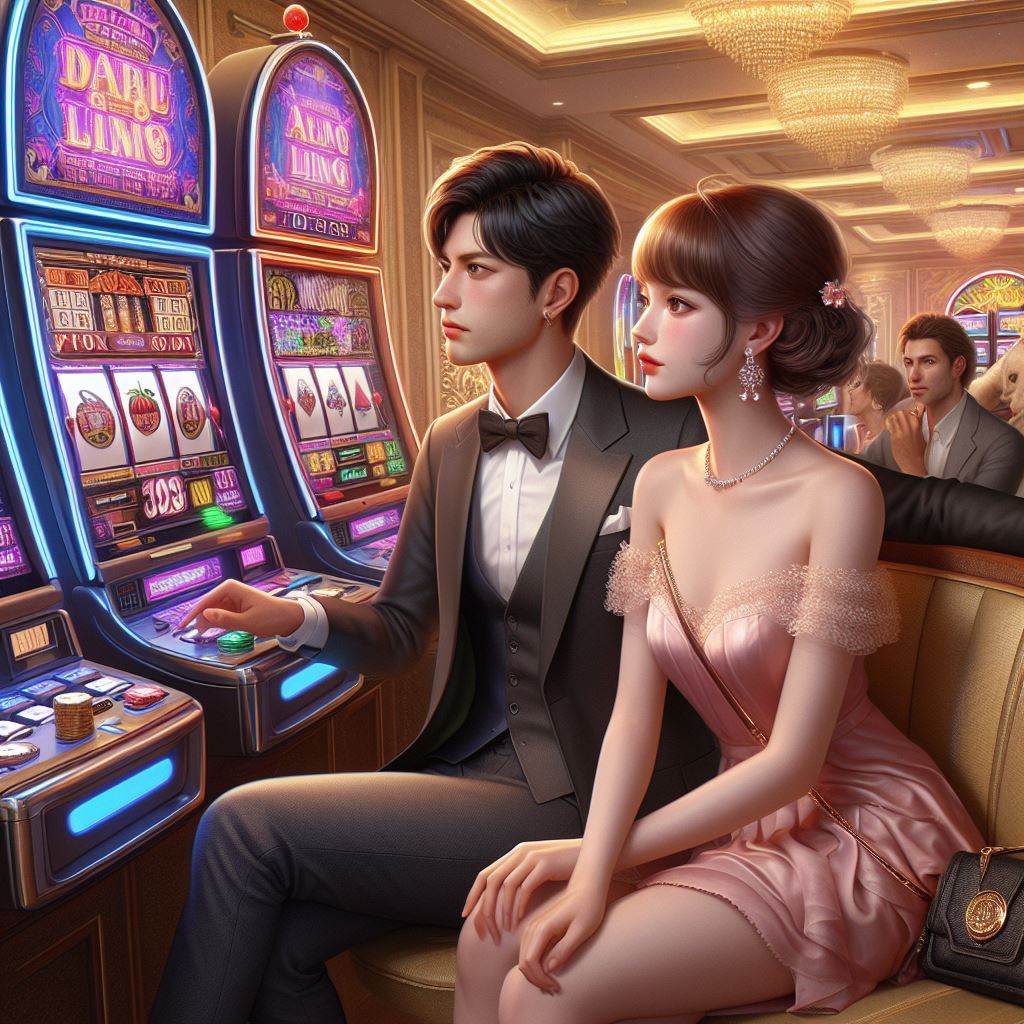Tren Terbaik Slot Online merupakan judul pada artikel kami pada hari ini. kami ucapkan selamat datang di steveheimoff.com Revealing the World of Gambling Through Words, Strategies, and Real Stories pembahasan menarik Slot online telah menjadi salah satu bentuk hiburan paling populer di dunia perjudian digital, menawarkan pengalaman yang kaya akan grafik dan penuh dengan inovasi. …
Continue reading Tren Terbaik Slot Online: Desain dan Tema Slot Online
Eksplorasi Menguji Keberuntungan Slot: Perjalanan Seru di Dunia
Eksplorasi Menguji Keberuntungan Slot merupakan judul pada artikel kami hari ini. kami ucapkan selamat datang di steveheimoff.com. Revealing the World of Gambling Through Words, Strategies, and Real Stories pembahasn menarik tentang Dunia slot online adalah medan yang tak terbatas, di mana para pemain berlomba-lomba untuk meraih keberuntungan besar dan sensasi yang tak terlupakan. Dalam artikel …
Continue reading Eksplorasi Menguji Keberuntungan Slot: Perjalanan Seru di Dunia
Rahasia Menemukan Slot Online: Tercapai Sebuah Kemenangan
Rahasia Menemukan Slot Online merupakan judul artikel kami pada hari ini. kami ucapkan selamat datang di steveheimoff.com. Revealing the World of Gambling Through Words, Strategies, and Real Stories pembahasan menarik tentang Slot online telah tumbuh menjadi salah satu segmen paling populer dan menguntungkan dalam industri perjudian. Dengan kemudahan akses dan beragam pilihan, permainan ini menarik …
Continue reading Rahasia Menemukan Slot Online: Tercapai Sebuah Kemenangan
Inovasi Terkini Slot Online: Apa yang Baru di 2024
Inovasi Terkini Slot Online merupakan judul pada artikel kami hari ini. kami ucapkan selamat datang di steveheimoff.com Revealing the World of Gambling Through Words, Strategies, and Real Stories Dalam dunia perjudian online, slot online terus berada di garis depan inovasi. Tahun 2024 tidak terkecuali, dengan pengembang perangkat lunak kasino yang mendorong batas-batas kreativitas dan teknologi …
Continue reading Inovasi Terkini Slot Online: Apa yang Baru di 2024
Perbandingan Platform Slot Online:Terpopuler di 2024
Perbandingan Platform Slot Online merupakan judul pada artikel kami hari ini. kami ucapkan selamat datang di steveheimoff.com Revealing the World of Gambling Through Words, Strategies, and Real Stories Seiring berkembangnya industri perjudian online, pemain kini memiliki banyak pilihan untuk bermain slot online. Dengan begitu banyak platform yang tersedia, mungkin sulit untuk mengetahui mana yang menawarkan …
Continue reading Perbandingan Platform Slot Online:Terpopuler di 2024
Ketika Hiburan Bertemu Keuntungan: Cinta Slot Online
Ketika Hiburan Bertemu Keuntungan merupakan judul pada artikel kami hari ini. kami ucapkan selamat datang di steveheimoff.com pembahasan menarik tentang Dalam dunia perjudian daring yang terus berkembang, slot online telah menjadi salah satu hiburan terpopuler bagi jutaan pemain di seluruh dunia. Tidak hanya menawarkan sensasi dan keseruan, tetapi juga potensi keuntungan besar yang dapat mengubah …
Continue reading Ketika Hiburan Bertemu Keuntungan: Cinta Slot Online
Memenangkan Slot dengan Teknik Bermain yang Cerdas
Slot merupakan salah satu permainan kasino paling populer yang menjanjikan kesenangan dan peluang besar untuk mendapatkan kemenangan besar. Namun, banyak pemain sering kali terjebak dalam siklus keberuntungan dan kekalahan tanpa menggunakan strategi yang cerdas. Artikel ini akan menguraikan teknik-teknik bermain yang cerdas untuk membantu Anda Memenangkan Slot dengan Teknik Bermain yang Cerdas. Pilih Mesin dengan …
Continue reading Memenangkan Slot dengan Teknik Bermain yang Cerdas
Mengoptimalkan Pengalaman Slot Online: Langkah Kemenangan
Mengoptimalkan Pengalaman Slot Online merupaka judul pada artikel kami hari ini . kami ucapkan selamat datang di steveheimoff.com pembahasan menarik tentang Slot online telah menjadi salah satu bentuk hiburan kasino yang paling populer di dunia digital. Namun, untuk benar-benar merasakan kesenangan dan meraih kesuksesan dalam permainan ini, dibutuhkan lebih dari sekadar keberuntungan. Berikut adalah langkah-langkah …
Continue reading Mengoptimalkan Pengalaman Slot Online: Langkah Kemenangan
Jejak Sukses Microgaming: Kisah Perjalanan Perjudian
Jejak Sukses Microgaming merupakan judul artikel kami pada hari ini . kami ucapkan selamat datang di steveheimoff.com pembahasan menarik tentang microgaming Sejak pendiriannya pada tahun 1994, Microgaming telah menjadi salah satu penyedia perangkat lunak kasino online terkemuka di dunia. Perusahaan ini tidak hanya memainkan peran penting dalam mengembangkan industri perjudian online, tetapi juga telah membentuk …
Continue reading Jejak Sukses Microgaming: Kisah Perjalanan Perjudian
Rasa Takut Menjadi Kemenangan: Slot Online Punya Solusi
Rasa Takut Menjadi Kemenangan merupakan judul artikel kami pada hari ini. kami ucap kan selamat datang di steveheimoff.com. pandangan menarik yang membahas tentang Rasa takut akan kegagalan sering kali menghalangi banyak orang dari mencoba hal-hal baru, termasuk bermain permainan kasino seperti slot online. Namun, dengan pendekatan yang tepat, slot online bisa berubah dari sumber kecemasan …
Continue reading Rasa Takut Menjadi Kemenangan: Slot Online Punya Solusi









